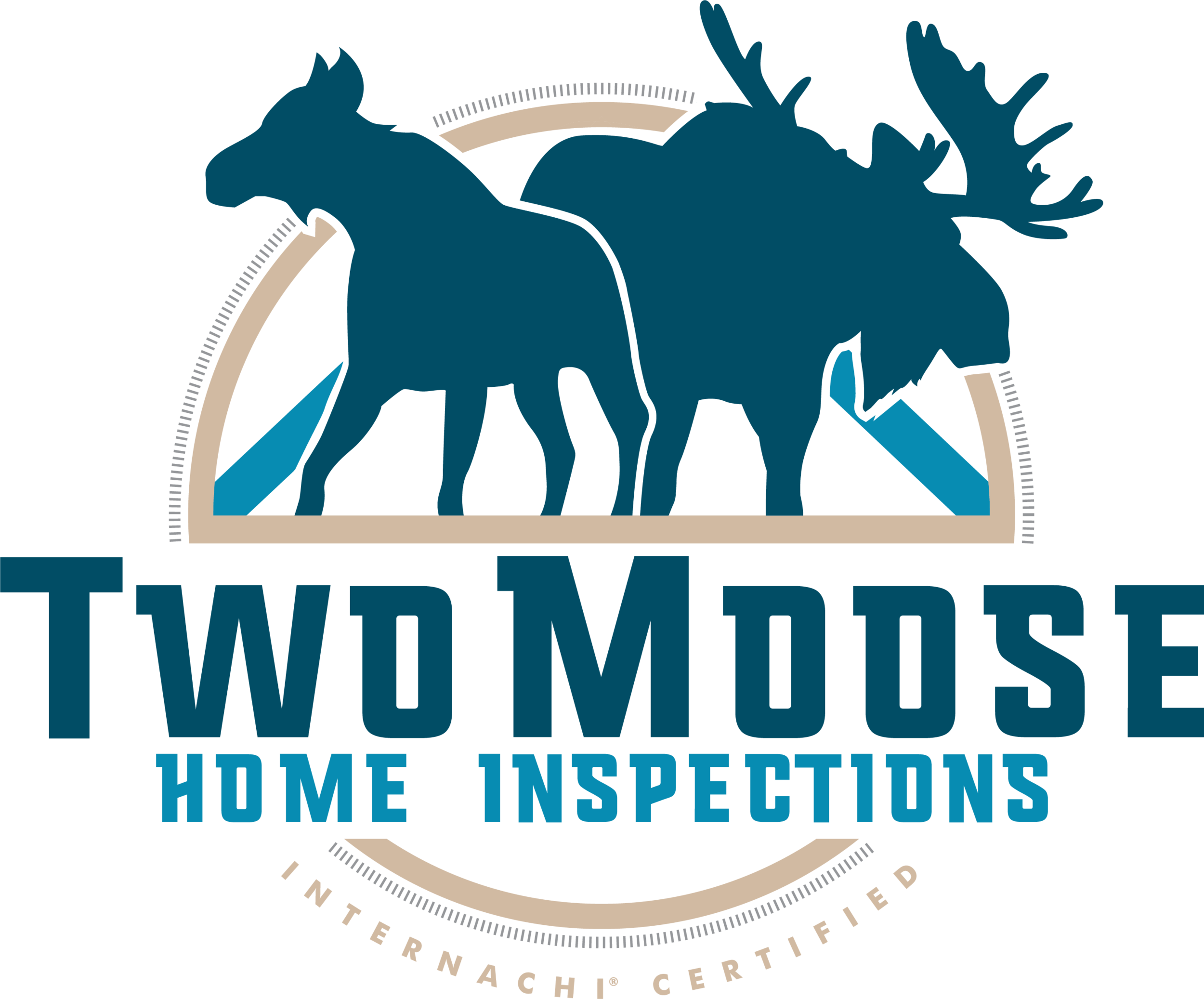S01E03 - Decoding House Bill 21-1195: Why Radon Licensing Matters
Transcript
Welcome to Moose Tales. I'm Jon with Two Moose Home Inspections, and I have some short home inspection topics I want to share. So let's dive right in.
Colorado issued emergency House Bill 21-1195 back in July 1st of 2022. And basically what this said is that if you are a radon measurement professional, then you need to be licensed with the state of Colorado. Now, at first I was like, license in the state of Colorado for being a radon measurement professional. Like, why would that have to be the case?
Because in my mind I'm just like, well, we're following everything that the EPA says that we're supposed to be doing. We have a huge quality assurance side of our home inspection company and the type of technology that we are putting out in the field is cutting edge. And so I was like, Why do we even need that bill?
So the reason we need that bill is because not everybody does it. So let's dive a little bit deeper into the why. So the main thing is, is that basically radon is such a health hazard that the state of Colorado recognizes it as such and then said that our public safety is so important that we need to ensure that if somebody says that there are low levels of radon, that they're actually are low levels of radon.
And if somebody says that there are high levels of radon, that there actually are high levels of radon, so it can be properly mitigated. And so basically what we have going on is that there are companies that charge the same amount of money that we charge to do a test. And their test uses equipment that is ten times less expensive as ours and cannot be recalibrated, which ours is recalibrated annually.
So why is it that radon is such an important topic? Well, radon is an important topic everywhere in the country. But there are areas where radon is less prevalent than in other areas. And for us being in the Rocky Mountains, radon is at the highest levels in the country, in our area up in the Rocky Mountains. Now, anywhere that you live, you should have your home tested for radon and you should have your home tested every five years for radon.
But it's important to understand that radon is second only to smoking tobacco as far as your risk of developing lung cancer.
So what happens is radon is radioactive. And what it wants to do is it wants to become stable. And so for it to become stable, it has to shoot off an alpha particle.
Then we have to go down the rabbit hole of all the different radon decay products until we finally reach lead as its final stable state. And so what happens is basically radon is able to come up from the underneath the ground and it comes into our homes. And the reason it comes into our homes is because our homes have lower pressure than the outside.
And so we can kind of get these higher concentrations of radon inside of our homes. And so what we want to do is make sure that radon is not there because the release of those alpha particles can be just terrible for our lungs, because as we're breathing in air, then that alpha particles being released and that can damage the cell walls inside of our lungs and make our lungs have a lot of health related issues.
Now, in addition to that, the radon decay products are also bad, and we don't want to have them inside of our lungs or inside of our house. And so we want radon levels to be low. So the easiest way to think about this is that radon kind of goes where the easiest path is. Now, radon is so small, it's at the atomic level
when we say, a mold spore is really tiny, well, we're talking like 300 times smaller than a mold spore.
So radon doesn't care if there's plastic. Radon doesn't care if there is wood or concrete. Radon can just pass right through those materials. And so it is colorless, odorless, tasteless.
You don't know that radon is there unless you measure for radon. And in fact, most tests are measuring for the radon decay products that are there, or some tests are measuring for alpha particles, yadda, yadda, yadda. The fact of the matter is, is that whenever you have radon your house, that is because as I'm taking a shower and I'm exhausting air out of my home, I now have lower pressure inside of my house.
And so radon says, this is an easy path. We're going to come into this house or let's say that I'm using the vent overtop of my kitchen and I'm pushing all this air out of my house when my house is now a lower pressure. And so radon is coming up from the ground and into the house. And so people might say, okay, well then what I'm going to do is I'm just going to not use those fans.
I'm not going to use those vents. Well, that's not good enough, because there's this thing called the stack effect. The stack effect basically says that you're going to have cold air at the bottom of your house, warm air at the top of the house, and it's going to basically create a convection current. And that hot air is going to exit the house.
And that is because most houses have poor air management. And that's why you see a lot of ice dams on houses and other things like that. But basically that hot, humid air is going to escape out the ceiling all the way, then out into the attic space, out into the roof. So basically we have air that is exiting the house.
Then that cold air is going to be coming in from underneath and it's going to be coming into the house. And so even with stacked with the stack effect, we're going to have radon that is being effectively sucked into the house. So how do we mitigate radon? Well, it doesn't matter how high your radon levels are. What is going to happen is, is that they are going to install some kind of suction to either the concrete slab or if you have a basement, you know, basically a concrete slab there, or if you have a crawl space, they're going to put down plastic and create a suction.
And so what's going to happen is, is that they are going to suck air out and the air is then going to be exhausted outside of the house. And so with radon, what that means is that the radon is going to say, you know, I'm in this area right near the house. There's lower pressure here and I'm just going to go into this pipe, really low pressure, and then the air blows it out because radon is going to follow that path of least resistance.
And so a lot of times the size of the fans that are being used for radon systems are too large or nil, just much bigger than they need to be. And that's a whole another topic for a whole other day. But it's important to understand that radon comes into the house, it comes into every home, and every home is at risk.
So what are the competition? What is the competition doing? The competition is basically taking these really cheap devices. And instead of doing a minimum 48 hour test as outlined, they are doing two hour long tests, which is completely insufficient, especially if there's not closed building conditions, because radon needs time to come into that house and the house needs to be closed.
The window shuts door shut, everything shut the home operating the way that it normally would with all the windows and doors shut, similar to how your house would be in the middle of winter. And so we then would measure that in the closed building conditions for 48 hours. Well, there are people in our area that were using little toys that were purchased off of Amazon and saying that what they were offering was a radon test and then people purchase a house with that expectation.
And now whenever they're selling the house a couple of years later and we do the test and it shows that there's high levels of radon, well then we have people that are a little upset because they say, Well, this is what we had. Thankfully, we educate and we go from there and they understand that, well, they didn't actually get a real test.
They didn't actually, you know, whatever. That's a whole other can of worms. But basically, you just want to make sure that if you're getting a home inspection, you should always be getting radon. And if you're in the state of Colorado and you're getting a radon test, then that radon professional has to be licensed with the state of Colorado.
And the licensing procedure really isn't that complex. You can go to the Department of Regulatory Agencies and you can figure out everything that needs to be done and you can get your entire team licensed and ready to go. But basically, if you're getting a home inspection, it needs to be inspected for radon. And in fact, every five years it should be inspected for rate on.
Now, if you, as the homeowner would like the company that we use for our for our professional grade equipment is called air things. And so air things is a really good company for radon type products. And they have home units that are between like $150 at the time of recording that you can keep that are continuous monitors. Now, the problem with these continuous monitors and I have one of these at my house just to make sure that nothing changes with my radon mitigation system.
But the problem with these is that they don't go in for recalibration. And so they could be trending in the direction of showing a lower value than what is actually real. They could be trending to show a higher value than what is actually real. And without having that sent back in for recalibration, you really don't know how accurate that particular device is.
So it's always recommended that you have a home inspector come or any kind of radon measurement professional that is licensed with the state of Colorado, come to your house at least once every five years, even if you have a radon mitigation system, because is the fan working properly? Has it been clogged on either end
and there are so many different things that change in the house that I install new bathroom exhaust fan that I install a new fan over the kitchen a lot of different things can change in the house that can affect radon levels.
And so the most important thing to keep in mind is the state of Colorado is concerned about the safety of the people in Colorado. And that is why if you're getting your home measured, a radon professional has to be licensed. Now, you can always measure your home yourself and use these test kits, but they are a little lackluster in comparison to what we're able to offer.
But you don't have to be licensed to measure your own house, is what I'm trying to say. All right. That's a pod.


